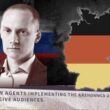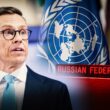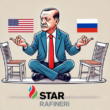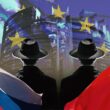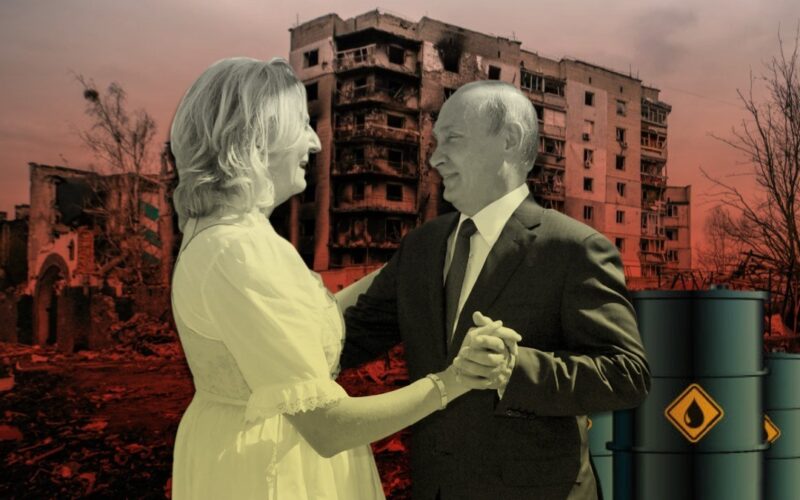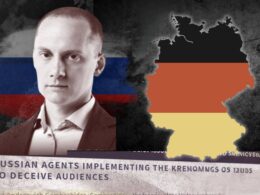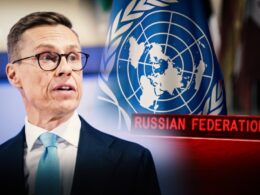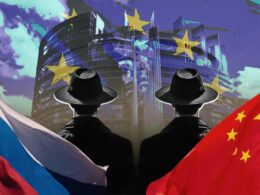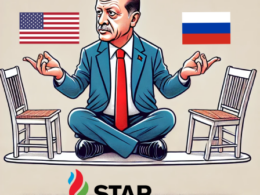Apart from hydrocarbons, corruption is Russia’s main instrument of influence on the West and the only successful “nomenclature” of exports. The growth of this vile phenomenon in the West led to the invention of the term “strategic corruption.”
Russia perfected strategic corruption by using Ukraine as an example, where weak internal institutions led to the introduction of Kremlin agents who made the necessary decisions. But it works somewhat differently in Western countries.
Robert Fico and Viktor Orban, in their respective countries, currently implement the pro-Kremlin lobbying scheme, followed by a “grateful secured old age.” But there is also an element of “friendly” ties between politicians and officials, industrialists and top managers.
And if the motivation of Western ex-officials to work in Russia is clear—it is money and presence in the information space—then the question arises: why does Russia need such people? The participation of former Western experts and politicians in the supervisory boards of Russian state companies and the high positions of top managers of these state companies is one of the many ways to corrupt the West.
The invitation extends to former politicians and top managers from large Western companies. They are paid huge salaries—this helps whiten the reputation of Russian companies in the eyes of Europeans, which would otherwise be associated with corrupt warehouses with mountains of bills and looting of natural resources, akin to Latin American drug cartel “dough.”
Russia employs former European politicians for the following reasons: Access to connections, including those with incumbent politicians, is the primary motivation. A former politician is a highly skilled lobbyist with a solid reputation.
However, there is a second reason. Employment in lucrative positions held by European ex-politicians is essentially a fulfillment of Russian obligations for already rendered services. After all, securing a spot in Putin’s club necessitates earning it while in power within your own nation. In fact, pro-Kremlin European politicians, under the guise of “Putin’s useful idiots,” “monetise” their position and “invest” in a secure life in their retirement age by selling the interests of the peoples of their countries and their electoral votes to Kremlin politicians.
One of Putin’s greatest “acquisitions” was Christian Kern, an experienced Austrian executive and ex-chancellor who managed to head the Austrian government for a year and then went to work in Russia. In 2010, he joined the Austrian Federal Railways, and four years later he became the head of the Community of European Railways and Infrastructure Companies. Kern received high ratings in 2015: Europe was going through a migration crisis, and he took over the organization of refugee transit.
As a result, the following spring, he headed the government of the Social Democratic Party of Austria. During his year at the helm, he managed to criticise the EU and United States’ anti-Russian sanctions for aggression against Ukraine. In the elections in 2017, Kurz and his party won, and Kern went into opposition. However, a year later, he announced his retirement from politics and transitioned into the private sector. In the summer of 2019, he joined the board of directors of Russian Railways, where he continues to work to this day. The spy scandal did not become an obstacle to this.
The next European heavyweight, Wolfgang Schüssel, is a significant figure in politics. He has dedicated his entire life to politics. In 1989, Schüssel assumed the role of Austrian Minister of Economy. Six years later, he rose to become the head of the party, simultaneously holding the positions of Vice Chancellor and Foreign Minister.
But the real star hour came a year later—Schüssel became head of the Austrian government. It was not without scandal. 13 EU nations significantly reduced their interactions with the Schüssel government, a move that some even interpreted as an informal imposition of sanctions against Austria. Despite internal protests and resolution of the situation, Austria’s political landscape remained unchanged.
Schüssel remained chancellor until 2007. Although he was always a member of the Austrian People’s Party, Schüssel held positions in the Austrian government exclusively in coalition with the Social Democratic Party of Austria, the Austrian Freedom Party, and the Alliance for the Future of Austria, which had emerged from it.
After that, he entered the private sector, where he began to openly espouse pro-Russian rhetoric. In 2014, Schüssel spoke out against anti-Russian sanctions at Valdai. According to him, restrictive measures are “always a sign of failure,” so it is necessary to seek “better understanding.” Eventually, life’s path led Schüssel to work in Russia: from 2018 to 2019, he was a member of the board of directors of MTS; and in 2019, he joined the board of directors of the oil company Lukoil, where he continues to work to this day.
Karin Kneissl is a much smaller-calibre politician when compared to Fillon and Schroeder, but no less famous. Remaining officially non-partisan, she took the chair of the Austrian Foreign Minister in Sebastian Kurz’s government on December 18, 2017, under the quota of the Austrian Freedom Party.
The world remembered the former Austrian foreign minister for dancing with Putin at her wedding in the summer of 2018. He arrived accompanied by a troupe of Cossack singers who performed for the guests; he brought the newlyweds a bouquet, a painting, an antique oil press, and a samovar. Putin then danced with Kneissl. Only one media outlet, Russia Today, broadcast footage from the wedding. This dance turned into a scandal for Kneissl. European politicians criticised her for undermining the EU’s common position and extending her hand to the Russian regime. In Austria, there were calls for her resignation.
At the head of the Foreign Ministry, she called for dialogue with the Kremlin. When Russia poisoned Skripal in the UK in the spring of 2018, Austria decided not to expel Russian diplomats, saying it wanted to remain “a bridge between East and West” and not close “channels of communication with Russia.”
However, maintaining complete neutrality proved impossible. Already in 2019, Kneissl left the government and revealed herself fully: she gave interviews and comments to Russia Today and also became their columnist. Kneissl’s pro-Russian stance “paid off” in March 2021—the Russian authorities approved her to the board of directors of Rosneft, and she settled in a village near Ryazan. Rosneft board members receive an annual sum of at least half a million euros, but her fee remains undisclosed.
She submitted her resignation from Rosneft’s board of directors on May 23, 2022, despite the Russian invasion of Ukraine and the corporation’s placement on the European Union sanctions lists. She refused to extend her authority for a second term on May 20. She announced her departure from the country in July, citing the threat of reprisals as the reason.
Austria does not have an effortless relationship with Moscow. After the end of World War II, the last Soviet serviceman left the territory of sovereign Austria only on October 19, 1955. Following the war’s defeat, Allied occupation zones divided Austria, just as they did Germany.
Even today, the official Kremlin closely monitors Vienna and attempts to manipulate certain aspects of its political life through corrupt politicians. The aforementioned examples clearly demonstrate the use of such tactics. And as we can see, Putin’s circle of useful friends in Austria is in some way connected to the Social Democratic Party of Austria and the Austrian Freedom Party, which carry the Kremlin’s point of view into Austrian society.
Moving on from history to today, Ukraine is grateful to Austria for providing asylum and assistance to Ukrainian citizens fleeing the Russian war. Recently, in May 2024, the local charity organisation Klosterneuburg Hilfe, which cares for 600 Ukrainian refugees, mediated an incident at a meeting of this city’s municipal council.
Anatoliy Fedoruk, the mayor of Bucha, a town that has become known worldwide for the atrocities committed by neo-fascist Russian invading soldiers against Ukrainian civilians, addressed the municipal council of the Austrian city of Klosterneuburg, but representatives of the far-right Austrian Freedom Party (FPÖ) and the Social Democratic Party of Austria (SPÖ) did not welcome his speech because it was “not the subject of the council.”.
